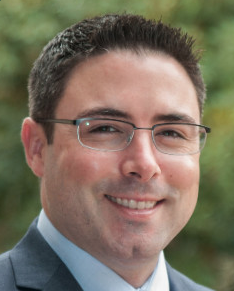
State: Calif.
Castillo: Threats and Scare Tactics: [2020-08-25]
Uber and Lyft can continue to misclassify their drivers as independent contractors, at least until October, due to a California Court of Appeal ruling issued in the wake of the companies’ threats and scare tactics to shutter operations in the state.

Michael Castillo
Two weeks ago, in response to a complaint for injunctive relief filed by Attorney General Xavier Becerra and city attorneys for Los Angeles, San Francisco and San Diego, a San Francisco judge issued a temporary injunction that ruled the app-based companies must comply with California law and properly classify their drivers as employees.
Uber and Lyft immediately filed an appeal while threatening to shutter operations in California if they were made to comply with Assembly Bill 5.
Last week, the appeals judge decided in the companies’ favor and granted them a stay in the ruling to classify their drivers as employees.
“Uber CEO Dara Khosrowshahi’s threats to shut down in California rather than comply with state law guaranteeing drivers basic workplace protections shows just how far gig economy companies will go to cheat workers in order to line their executives’ pockets,” said José Ulises Cabrera, leader of Mobile Workers Alliance, an organization of “mobile professionals” advocating on behalf of app-based drivers.
The appeals court has given Uber and Lyft until Sept. 4 to provide sworn statements from their CEOs outlining plans to comply with California’s AB 5 to provide their employees with access to basic and legally required employment benefits such as a minimum wage, paid sick leave, unemployment insurance and workers’ compensation, if the court affirms the injunction. The companies can continue operating in their current capacity until oral arguments begin on Oct. 13.
It’s not the first time Uber has used threats and scare tactics to avoid laws they don’t like. In 2016, Uber and Lyft left Austin, Texas, a week after the city approved a law requiring drivers to be fingerprinted as part of extensive background checks. Other companies, who followed the law, filled the void, and drivers even found ways to create their own ride-hailing businesses so they could eliminate the middleman and keep all of their hard-earned profits.
However, the Texas Legislature eventually caved to Uber and Lyft by passing a law eliminating the fingerprinting requirement in 2017.
Amidst the continued political posturing in California, Khosrowshahi continues to assert that the companies simply “can’t hire 50,000 people overnight,” yet they’ve had nearly a year to figure out how to comply with the law and implement proper protections for drivers.
Instead, they’re continuing to pour millions of dollars into their ballot initiative campaign, hoping voters will approve Proposition 22 this November and allow app-based companies to continue to mistreat their employees. For the sake of drivers and their families, we hope voters say no.
Michael Castillo is communications director for the California Applicants' Attorneys Association. This opinion is republished, with permission, from the CAAA website.